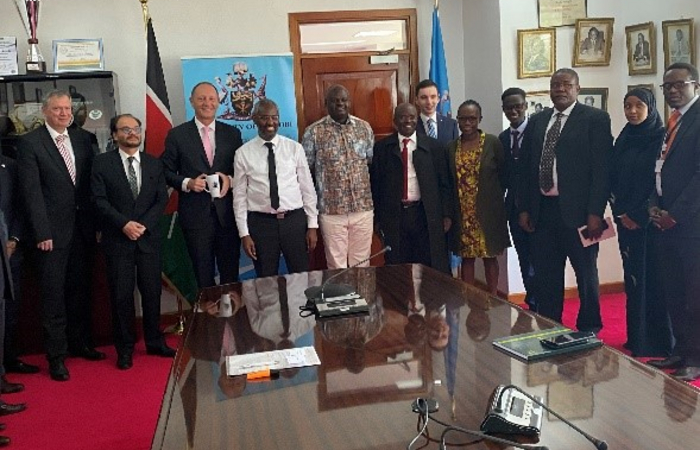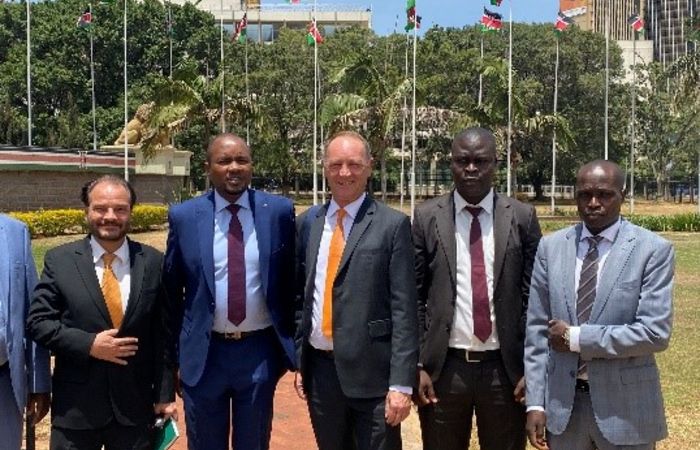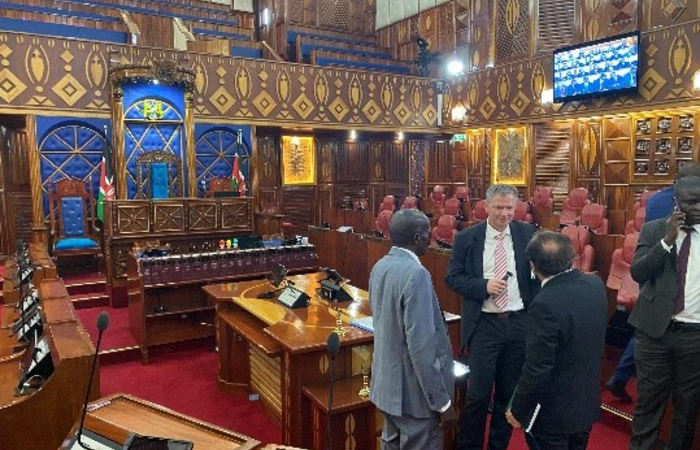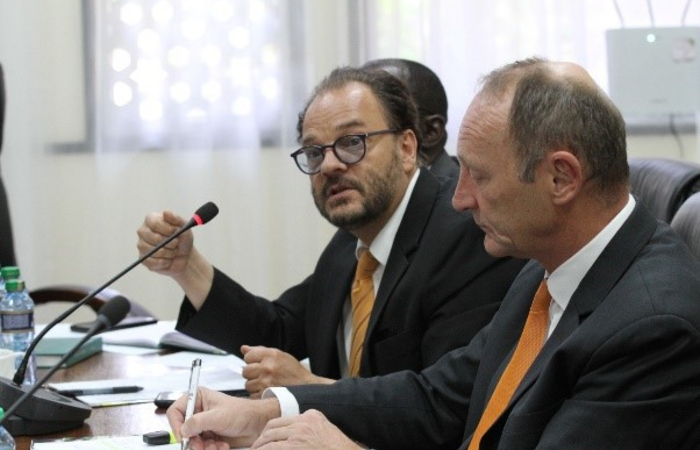East Africa: Burundi and Kenya
Political and scientific aspects
In February 2023, an Austrian delegation led by MMMag. Dr. Axel Kassegger, President of the FBI and Foreign Policy Spokesperson and Chairman of the Parliamentary Friendship Group Austria - Sub-Saharan Africa, traveled to Burundi and Kenya. In addition to an intensive exchange of experiences at parliamentary and university level, the aim of the trip was to begin concrete talks and negotiations with selected universities with regard to possible cooperation between the Freedom Institute of Education and the respective university concerning the sending of Austrian guest lecturers and Austrian guest students to Africa.
On Monday, February 13, 2023, the delegation met with the Rector of the Université du Burundi Rumuri Prof. Dr. Audace Manirabona, the Head of International Cooperation Prof. Willy-Marcel Ndayitwayeko and other members of the university. The university has 16,000 students spread across nine campuses and 17 research centers.
The mentoring model that the Université du Burundi offers its 300 PhD students is particularly interesting. This means that every PhD student is assigned a mentor ("supervisor") both by the university and by an external organization in the country or abroad. It is also worth mentioning that Prof. Dr. Leonidas Ndayisaba, who studied and worked at the University of Salzburg for many years, has a personal connection to Austria. There is currently no cooperation with Austrian universities and colleges, which is why Dr. Kassegger, head of the delegation, presented the Austrian Africa-UniNet program to promote cooperation between Austrian and African universities in the field of teacher exchange and research.
On the same day, the delegation was received by the President of the National Assembly, Honorable Daniel Ndabirabe, on the premises of the Burundian parliament. President Ndabirabe presides over the first chamber, the Assemblee Nationale du Burundi with 123 deputies, which represents the country's legislature alongside the 48-member Senate.
The delegation also met the Burundian Minister of Science and Research, Prof. Francois Havyarimana, who presented the Republic of Burundi's strategic plan for the further development of the education sector, highlighting the problem that exists in many African countries of the lack of technical schools and the insufficient availability of companies required for well-functioning dual training.
On Tuesday, February 14, 2023, the delegation flew on to Nairobi, Kenya, where they were received at the airport by the Austrian ambassador to the country, Dr. Christian Fellner.
A detailed working session was held in Nairobi with members of the Defense and Foreign Affairs Committee of the National Assembly of the Republic of Kenya, chaired by Hon. Nelson Koech, MP. In the discussion on the impact of the war between Ukraine and Russia on Kenya, the significant increase in the price of fertilizers and the threat of dwindling oil and gas supplies were discussed. The supply of grain is also becoming problematic. The Kenyan politicians expressed their wish for a quick and peaceful settlement of the conflict. China is becoming an increasingly important partner in economic matters in the region, including for Kenya. Climate change is an issue, especially with regard to the lack of rainfall and the resulting crop failures, whereby urgent measures to ensure irrigation (construction of dams and irrigation systems) could provide a remedy. During a guided tour of the Kenyan parliament, the plenary chamber of the National Assembly (first chamber next to the Senate) and the mausoleum of the first President Jomo Kenyatta (1964 - 1978) were visited.
In the field of education, there are already functioning bilateral cooperations between Austrian and Kenyan universities, and six universities from Kenya are already participating in the Austrian Africa UniNet program. A deepening of cooperation in the area of dual education is desired and is being sought. Both Kenya and Austria are countries in which income from tourism accounts for a significant proportion of gross domestic product. Cooperation in the field of tourism training is therefore of particular interest, with the desire for study places for Kenyans at renowned Austrian tourism schools being expressed.
At a reception hosted by Austrian Ambassador MMag. Dr. Christian Fellner with around 20 Austrians working abroad in Kenya, there was an exchange of views with entrepreneurs, scientists and diplomats.
The following day, a meeting was held with the Vice Chancellor Prof. S.G. Kiama and several deans of the oldest and largest university in Kenya.
The University of Nairobi was founded in 1956 as the "Royal Technical College" and operated as the "University of East Africa" until 1970. Around 60,000 students study at various faculties spread across a total of eight campuses. International diplomacy is taught at the "Department of Diplomacy", and lively interest has been expressed in expanding cooperation with the Vienna Diplomatic Academy.
Following the meeting at the University of Nairobi, the delegation was received at the Kenyan Parliament by the Speaker of the House of Representatives Hon. Sen. Moses Matika Wetangula for an exchange of views.
Since the constitutional referendum in 2010, Kenya has had a bicameral system with a National Assembly and a Senate. The impact of the Ukraine-Russia war on Africa and issues of bilateral interest were discussed with former Foreign Minister Wetangula (2008-2010, 2011-2012).
Another working visit was made to the Catholic University of Eastern Africa (CUEA) in Nairobi with Rev. Prof. Stephen Mbugua Ngari. The CUEA is a private university founded in 1984 with around 8,000 students in five faculties and extensive programs for students from other countries. These currently come from all over Africa. The proposal to enter into cooperation with the Freedom Institute of Education (FBI) with regard to sending Austrian students to Nairobi was received with great interest. Following the meeting in the Rector's office, the delegation visited a selection process for study places abroad in the university's Auditorium Maximum, which was attended by hundreds of students.



